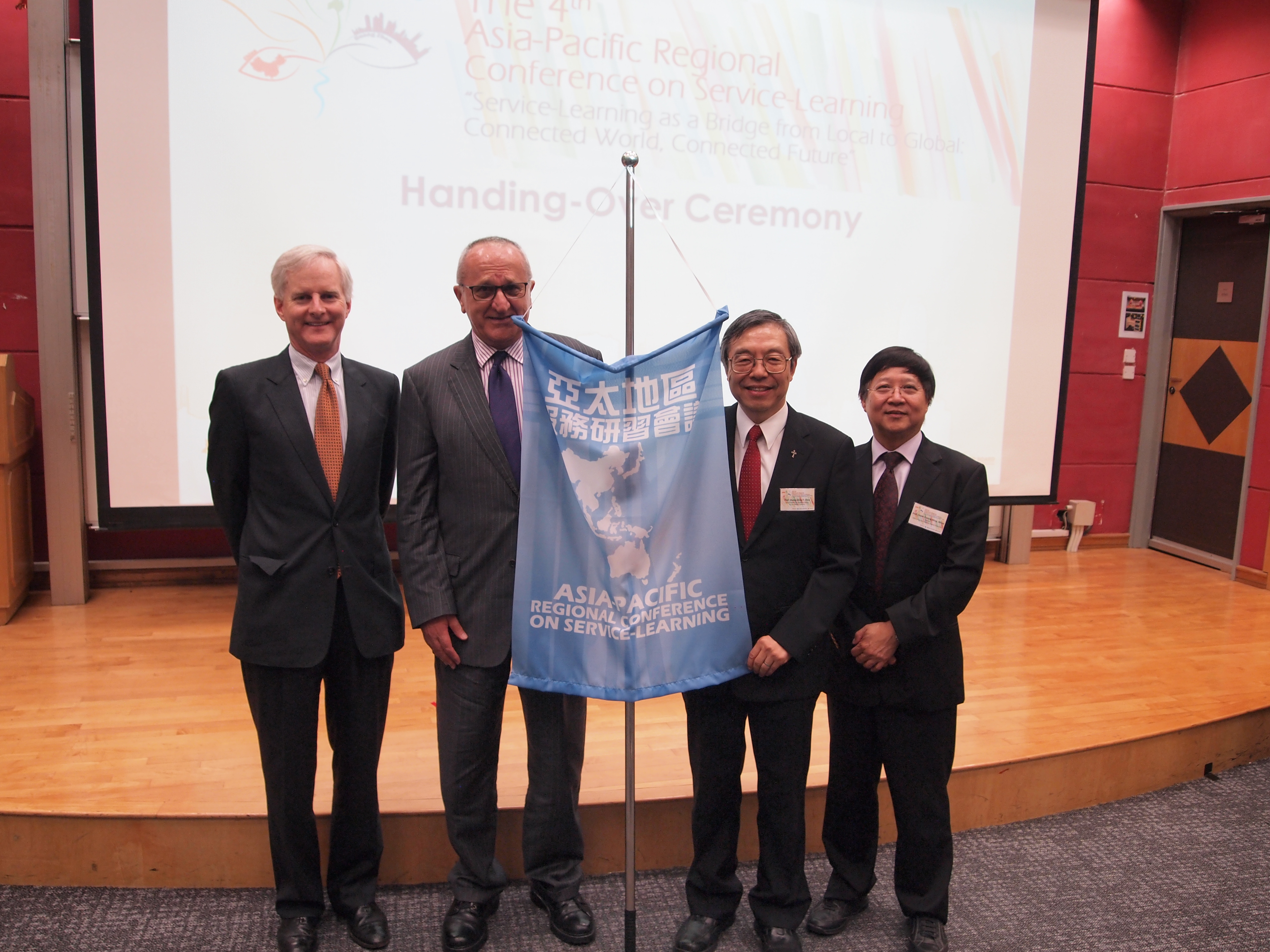Location
MD203, Paul Cardinal Shen Medical Building, Fu Jen University
Start Date
29-5-2015 10:40 AM
End Date
29-5-2015 11:50 AM
Description
Dissemination is an important principle of Service-Learning. Basically, it contributes to a better promotion and appreciation of this academic tool, especially to potential S-L students, faculty and supporters. It is considered an important tool needed to ensure a successful program implementation.
As a process in communication, dissemination requires a better understanding of its principles, processes and practices to ensure effectiveness in the attainment of objectives and goals.
This study, anchored on selected communication theories, looks into the methods of dissemination and practices used or observed from inter-personal to group, mass and social media - by Service-Learning advocates in the University of St. La Salle.
It explores the following considerations in dissemination: who sends the message, what kind of messages do S-L advocates send, the target audience of the messages - both internally or externally - and the ways by which they are sent or delivered.
It also looks into the ways by which dissemination is maximized through occasions of celebration with the goal of further popularizing an academic approach through a program that is still taking roots in the institution.
After identifying these elements, the study goes further by looking into ethical issues that get into the process of effective and credible S-L information dissemination.
Traditional ethical concerns - from copyright to privacy laws - and emerging ones, especially those related to social media and communication behavior linked to technological advancement - highlight this discussion.
By focusing attention on the need for proper processes in dissemination, the author hopes to contribute to greater awareness among S-L advocates on appropriate application ethical approaches in dissemination of Service-Learning-related information.
Recommended Citation
Del Carmen, A. (2015, May). Ethical concerns in dissemination as a principle and practice in service-learning: The University of St. La Salle experience. Paper presented at the 5th Asia-Pacific Regional Conference on Service-Learning: Love Journey: Community Engagement through Service-Learning, Fu Jen Catholic University, Taiwan.
Ethical concerns in dissemination as a principle and practice in service-learning : the University of St. La Salle experience
MD203, Paul Cardinal Shen Medical Building, Fu Jen University
Dissemination is an important principle of Service-Learning. Basically, it contributes to a better promotion and appreciation of this academic tool, especially to potential S-L students, faculty and supporters. It is considered an important tool needed to ensure a successful program implementation.
As a process in communication, dissemination requires a better understanding of its principles, processes and practices to ensure effectiveness in the attainment of objectives and goals.
This study, anchored on selected communication theories, looks into the methods of dissemination and practices used or observed from inter-personal to group, mass and social media - by Service-Learning advocates in the University of St. La Salle.
It explores the following considerations in dissemination: who sends the message, what kind of messages do S-L advocates send, the target audience of the messages - both internally or externally - and the ways by which they are sent or delivered.
It also looks into the ways by which dissemination is maximized through occasions of celebration with the goal of further popularizing an academic approach through a program that is still taking roots in the institution.
After identifying these elements, the study goes further by looking into ethical issues that get into the process of effective and credible S-L information dissemination.
Traditional ethical concerns - from copyright to privacy laws - and emerging ones, especially those related to social media and communication behavior linked to technological advancement - highlight this discussion.
By focusing attention on the need for proper processes in dissemination, the author hopes to contribute to greater awareness among S-L advocates on appropriate application ethical approaches in dissemination of Service-Learning-related information.

